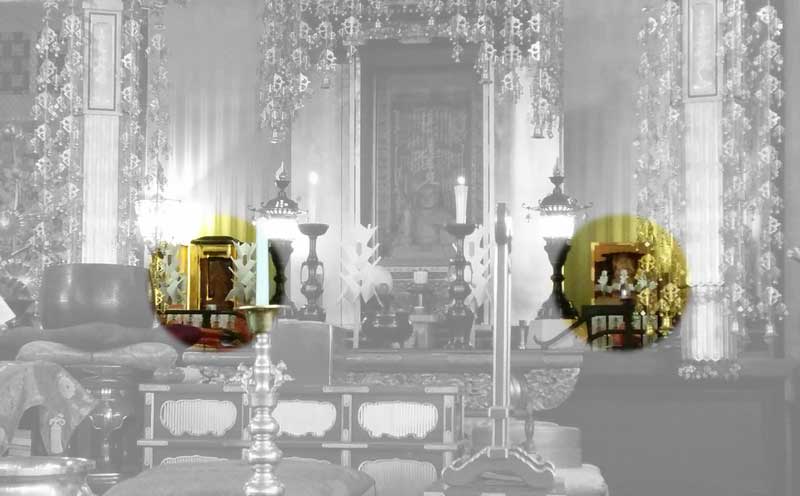Day 26 concludes Chapter 21, The Supernatural Powers of the Tathāgatas, includes Chapter 22, Transmission, and introduces Chapter 23, The Previous Life of Medicine-King Bodhisattva.
Making Buddhas happy:
The Buddhas joyfully display
Their immeasurable, supernatural powers
Because [the Bodhisattvas from underground]
[Vow to] keep this sūtra after my extinction.
And …
Anyone who keeps this sūtra will be able to cause me to rejoice.
He also will be able to bring joy
To [the Buddhas of] my replicas
And also to Many-Treasures Buddha who once passed away.
He also will be able to see
The present, past and future Buddhas
Of the worlds of the ten quarters,
Make offerings to them, and cause them to rejoice.
Repaying the favor:
Now I will transmit [the Dharma] to you. Keep, read, recite and expound [this sūtra in which the Dharma is given], and cause all living beings to hear it and know it! Why is that? It is because I have great compassion. I do not begrudge anything. I am fearless. I wish to give the wisdom of the Buddha, the wisdom of the Tathāgata, the wisdom of the Self-Existing One, to all living beings. I am the great almsgiver to all living beings. Follow me, and study my teachings without begrudging efforts! In the future, when you see good men or women who believe in the wisdom of the Tathāgata, you should expound this Sūtra of the Lotus Flower of the Wonderful Dharma to them, and cause them to hear and know [this sūtra] so that they may he able to obtain the wisdom of the Buddha. When you see anyone who does not receive [this sūtra] by faith, you should show him some other profound teachings of mine, teach him, benefit him, and cause him to rejoice. When you do all this, you will be able to repay the favors given to you by the Buddhas.
And in The Previous Life of Medicine-King Bodhisattva, the ultimate gift:
Having made these offerings [to the Buddha], he emerged from the samādhi, and thought, ‘I have now made offerings to the Buddha by my supernatural powers. But these offerings are less valuable than the offering of my own body.’
Then he ate various kinds of incense taken from candana, kunduruka, turuṣka, pṛkkā, aloes and sumac, and drank perfumed oil taken from the flowers of campaka and other flowers[. He continued doing all this] for twelve hundred years. Then he applied perfumed oil to his skin, put on a heavenly garment of treasures in the presence of Sun-Moon-Pure-Bright-Virtue Buddha, sprinkled various kinds of perfumed oil on the garment, and set fire to his body, making a vow by his supernatural powers. The light of the flame illumined the worlds numbering eight thousands of millions of times the number of the sands of the River Ganges.
The Buddhas of those worlds praised him, saying simultaneously, ‘Excellent, excellent, good man! All you did was a true endeavor. You made an offering to us according to the true Dharma. This offering excels the offerings of flowers, incense, necklaces, incense to burn, powdered incense, incense applicable to the skin, streamers and canopies of heavenly cloth, and the incense of the candana grown on this shore of the sea. It also excels the offerings of countries, cities, wives and children. Good man! This is the most excellent and honorable offering because you made it to us according to the Dharma.’


